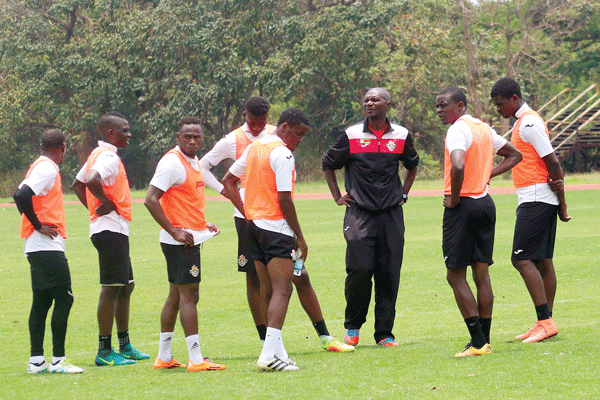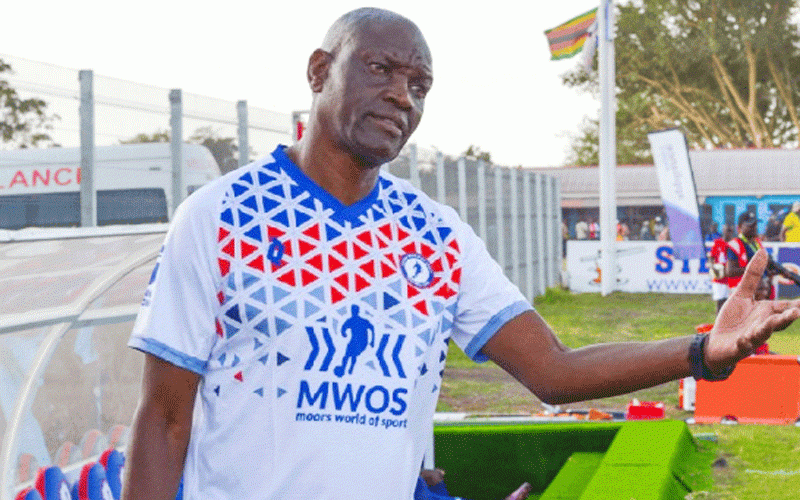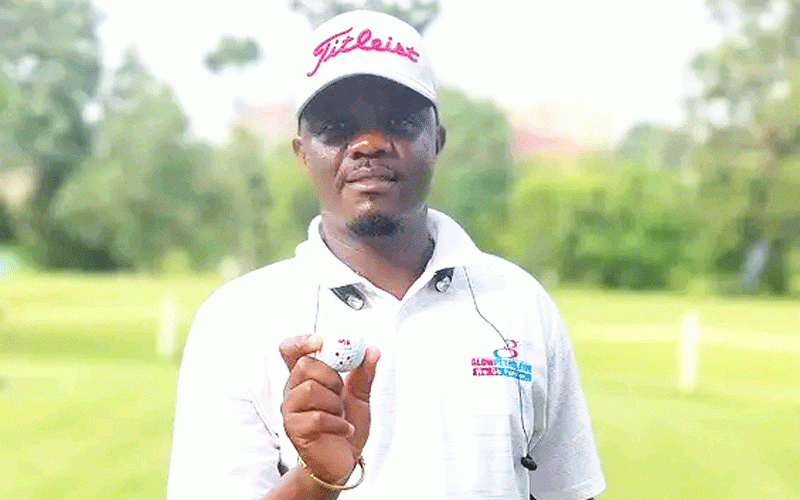
ZIMBABWE’S disappointing performance at the Gabon tournament immediately makes coach Kalisto Pasuwa the worst among the lot who have taken the Warriors to the Africa Cup of Nations (Afcon) finals.
BY MUNYARADZI MADZOKERE
After qualifying for a third Afcon final appearance, the former Dynamos gaffer was hailed for taking the Warriors to the promised land as group leaders, which raised hopes for a better performance this time around.
However, Pasuwa and his Warriors crashed out at the first hurdle with just a single point from three matches to finish bottom of Group B which included Senegal, Algeria and Tunisia.
The Warriors began their Afcon finals campaign with a commendable 2-2 draw with Algeria before being thumped by Senegal and Tunisia 2-0 and 4-2 respectively.
Glaring was Pasuwa’s tactical deficiencies — the only local gaffer without European experience as coach or player, making very questionable team selections, let alone finding a solution to a leaking defence in all three matches.
One of the most bizarre decisions made by Pasuwa was sticking with out of sorts Dynamos defender Elisha Muroiwa as Costa Nhamoinesu’s central defence partner.
This was in spite of the fact that Muroiwa missed the entire second half of the 2016 league season due to injury and as a result, was found wanting physically, leaving Nhamoinesu with too much to do.
- Chamisa under fire over US$120K donation
- Mavhunga puts DeMbare into Chibuku quarterfinals
- Pension funds bet on Cabora Bassa oilfields
- Councils defy govt fire tender directive
Keep Reading
Notwithstanding that Nhamoinesu was already a makeshift centre back.
It seemed as though Pasuwa had no other defensive options, but Teenage Hadebe — who has proved himself over and over in Warriors colours every time he got a chance — was sitting on the bench the whole time.
What Muroiwa lacked in fitness and height, Hadebe would have offered, with an added advantage being that the latter has proved to be full of goals.
Lawrence Mhlanga, Oscar Machapa and Bruce Kangwa all failed to get the chance to get a run around, even when the team was 4-1 down at halftime against Tunisia.
Only 16 out of 23 players who travelled with the team to Gabon managed to get any game time, and strangely, it was at the back — the team’s weakest link — where not a single change was made.
Pasuwa insisted on starting Nyasha Mushekwi in attack in all the games, while South Africa Premier League prolific scorer, Orlando Pirates’ Tendai Ndoro, who was employed from the bench and played wide, still bettered Mushekwi on the goalscoring charts.
One wonders why Sweden-based starlet Tino Kadewere never got a chance to play despite plying his trade in a superior league.
In a crisis moment when the team’s talisman Knowledge Musona was injured, an ineffective Matthew Rusike — who was clearly lacking in confidence — was preferred.
More appalling was the one dimensional approach to all the fixtures, which exposed the former Dynamos coach’s inability to study opponents and find a perfect strategy to snuff them out.
With better tactical astuteness, the draw against Algeria could have been converted to a win as the team conceded a late goal from Riyad Mahrez.
Even in the second match, Zimbabwe seemed to have no clue about the presence of Lazio forward Balde Keita in the Senegal squad. Keita eventually destroyed the Warriors, creating both goals.
But it was in the Senegal match that Pasuwa showed beyond doubt that he had brought one strategy to the match — to have a go at the vastly superior opponents. But once the team was two goals down early in the match, there was no coming back.
After the defence was exposed by Algeria, there was no deliberate attempt to rectify the mistakes, with Pasuwa retaining the same defence line and again conceding two early goals against Senegal.
While the intention was to attack, fullbacks Onismor Bhasera and Hardlife Zvirekwi were oftentimes caught off-position. It made no sense venturing forward as they remained ineffective on the offence.
The gulf of class between Senegal and Pasuwa’s charges may have been too great, but Tunisia stood between Zimbabwe and the quarterfinal berth.
Tunisia, with 14 locally-based players compared to Zimbabwe’s seven in their Afcon squad, made light work of the Warriors, rallying into a 3-0 lead in the first 36 minutes.
Having watched Zimbabwe’s defensive frailties, Tunisia knew exactly what to do — to put pressure on the opposition defence early on and the result: a 4-1 halftime lead, thus ending the match as a contest.











